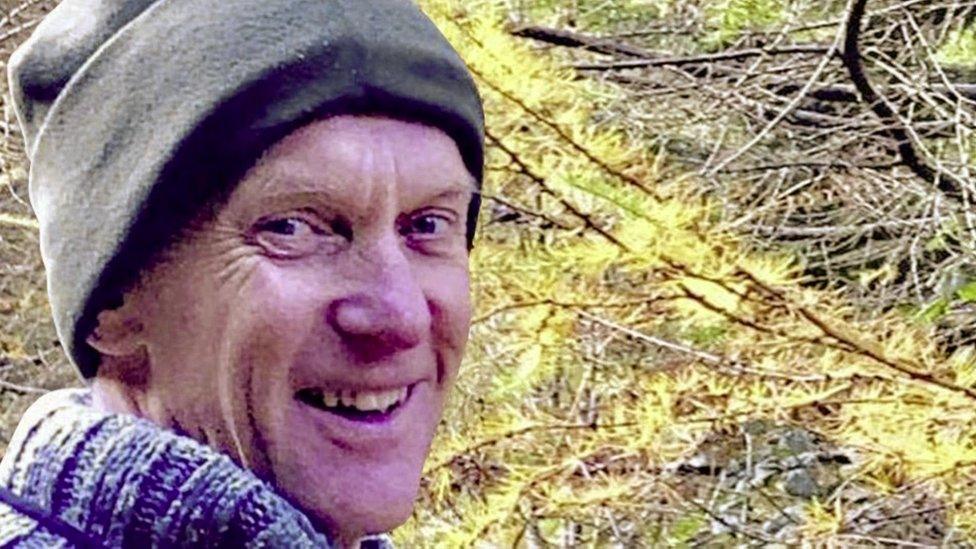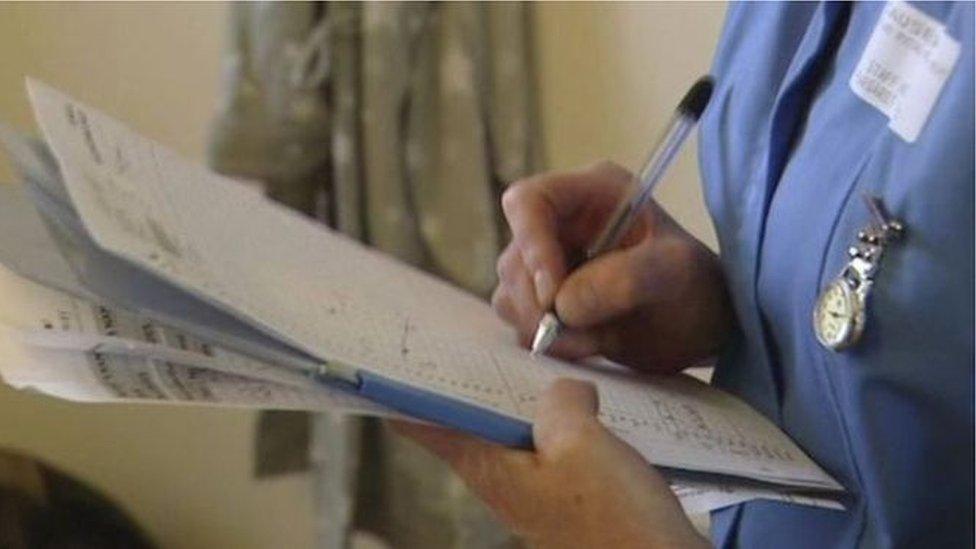Michael Watt: Review of 44 deceased patients completed
- Published

Dr Michael Watt worked at the Royal Victoria Hospital as a neurologist
A review of the medical records of a small number of deceased patients of former neurologist Dr Michael Watt has been completed.
The findings from the review, conducted by the Royal College of Physicians (RCP), are being shared with the families of the 44 deceased patients.
In May 2018, the Department of Health commissioned the review. , external
It asked regulator the RQIA to review the records of Dr Watt's patients who died in the previous ten years.
The Royal College of Physicians, which has been examining 44 deceased patients' records as part of phase 2 of the review, has provided the RQIA ( Regulation and Quality Improvement Authority) with its reports.
'Phased approach'
Families who wish to receive details of the review of their loved ones' medical records are being offered an opportunity to discuss the findings.
The Department of Health said it had received the final detailed reports and were considering the findings.
"The department is currently making the appropriate arrangements to share the outcome of this work and also to set out the next phase of the review process relating to deceased patients, which will be confirmed in due course," it said in a statement.
The department previously agreed the RQIA should take a "phased approach" to the review, because of the scale of the work involved in reviewing the records of deceased patients formerly under the care of Dr Watt between 2008 and 2018.
The RQIA has estimated there may be more than 3,000 deceased patients who were at some point under the care of Dr Watt in the 10-year period prior to May 2018.
The 44 cases selected for review included deceased patients whose family members had approached the RQIA with concerns about their care.
Those included in the first cohort of the Belfast Trust's neurology recall, but who died before they could be re-assessed, were also selected for inclusion.


While diagnosis and treatments are challenging, the relationship patients have with health organisations post treatment can also be difficult.
This has been highlighted by the Muckamore, Urology, Neurology and Hyponatraemia inquiries.
They all stressed the importance of respecting patients and handling their complaints with transparency and compassion.
Often patients say a lot of heartache from inquiries can be avoided if they are treated with respect and issued an apology.
The timing of when and how a report is issued is also critical.
Ensuring those affected are at the forefront when a report is shared should be paramount. Families do not want to hear a review has been completed via the media.
The handling of the Neurology report publication, chaired by Brett Lockhart QC, was a success because families felt included.
The findings of the RQIA neurology review hasn't been as slick - and families feel let down.

An RQIA spokesperson said: "The Royal College of Physicians (RCP) Expert Review Panel provided the RQIA with its reports on its review of the medical records of 44 deceased patients of Dr Watt in late June.
"RQIA's Family Liaison Team is currently making arrangements to share the individual case summaries with those families who wish to receive them, to offer them an opportunity to discuss these findings and where appropriate to provide a further explanation or follow up."
The spokesperson said the RQIA was mindful that this was a "particularly difficult time" for the families involved, and as such would not be making any comment on individual cases.
"RQIA wishes to thank the families who came forward to voice concerns, for their participation in the Review; they have played a key role in illuminating the reality of the experience of patients and families," they said.
"We also thank the Royal College of Physicians, and the members of the Expert Review Panel, for their sensitive and thorough review of these records. The RCP's overview reports have been shared with the Department of Health, as the commissioner of the Review."
The BBC has contacted the Department of Health.
Related topics
- Published21 June 2022

- Published21 June 2022

- Published20 April 2021

- Published1 May 2018
